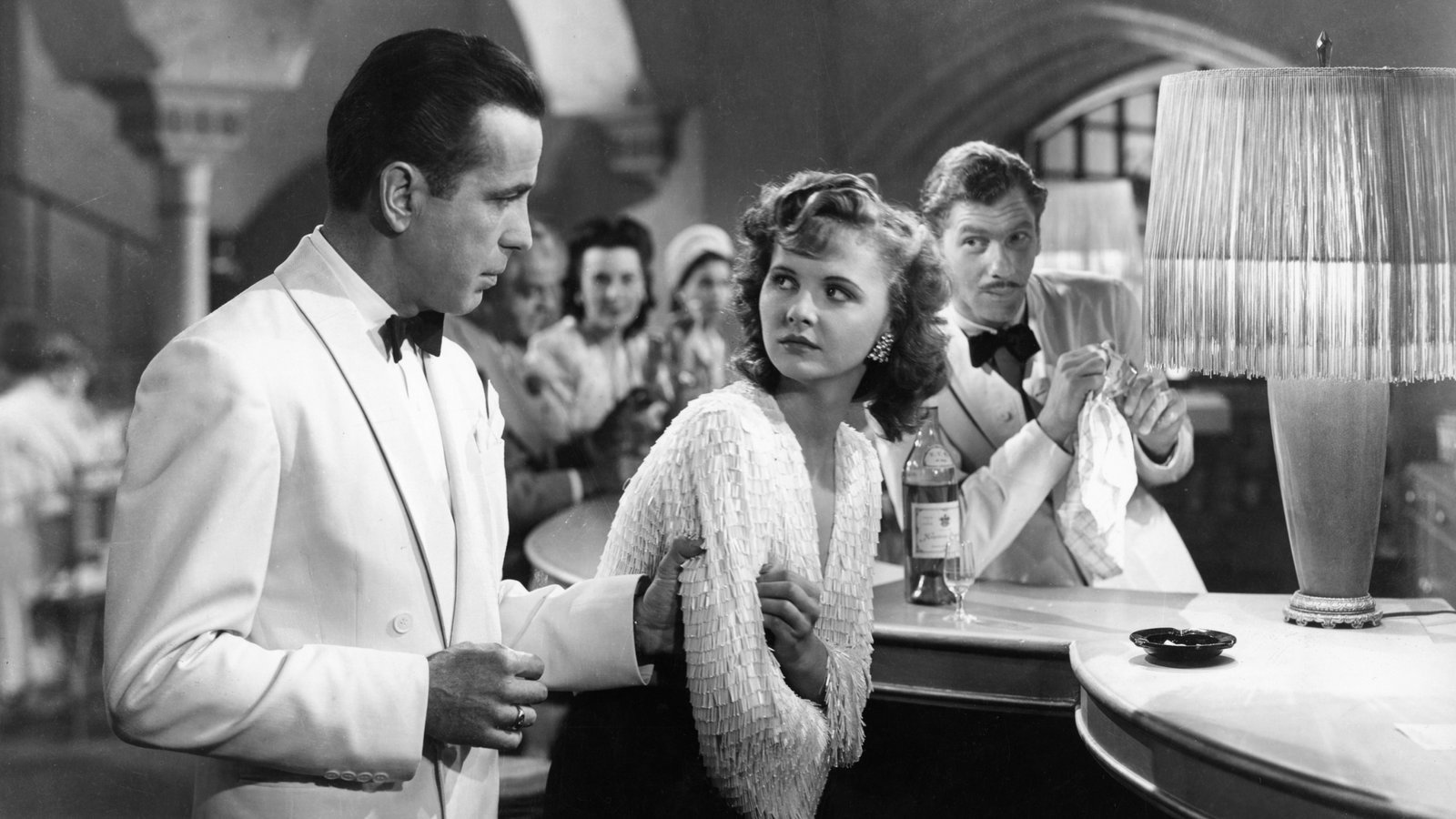Dish of the Day
Just some film musings of a more succinct, spontaneous and sometimes seditious nature:
Sunday, March 12, 2023
“Noir or Not Noir” (Part 2)
In various Film Noir related chat rooms, I’ve been routinely asked whether certain films should be classified as “Film Noir.” Many fans are already aware that expert Eddie Muller has a series of video vignettes on the same subject. Usually, it seems we agree but once in a while we don’t. Either way, film noir aficionados and laypersons alike might enjoy my take on the following films keeping in mind whether or not they are included in the film noir category is in no way indicative of each film’s overall quality.
(“Noir or Not Noir” Part 1 can be seen here).
#Note: There are plot spoilers.
Casablanca (1942)
Film noir is a contentious subject to be sure. Even Wikipedia says so! Hopefully we can have fun with it no matter which side of the "noir or not" debate we're on. The French film critics who first defined the term were noticing a new development in the U.S. crime films of the 40s and 50s largely absent in those of the previous decades. All of these films (before and after) were centred around some sort of illegal activity. While there is criminality in Casablanca, it is not the story's focus, nor is this the storytellers' primary concern. The letters of transit so sought after, legally allows one's safe passage out of the country. That is why we see so many desperate people trying to get their hands on them (and in some cases resort to crime to do so). The individuals who do commit crimes to get them, however, are ancillary figures (e.g. Ugarte killed early on). More importantly is the reason they are trying to leave, i.e. the Nazis. That's political, not at the time defined as criminal. So, fascism, those who fight against it, want to escape it, the romantic entanglements that result from it, and sacrifices made because of it, are clearly the storytellers' primary interest and not therefore a subject of films noir any more than they are in almost all of the so called "gangster films" that came before them. So, romance, adventure, political intrigue yes, but NO Casablanca is not film noir.
The Night of the Hunter (1955)
The Night of the Hunter with its opening lesson on "wolves in sheep's clothing", the serial murders, the father, Ben Harper, who robs a store and kills someone so that his children will not go hungry and the same murderous preacher who tries to take the money from his kids, certainly qualifies as film noir in terms of its criminal activity being front and centre. Then there's the hangman's guilt over his part in the death of Harper but happy to perform his duty on the "false prophet" killer. Lynch mobs, trials, an elderly woman defending her home against the dangerous intruder... all centred around crimes. And perhaps most important of all, contained in this newly emerging type of crime films called noir, the complex and ever changing thought processes behind and in response to them. So YES, The Night of the Hunter is film noir.
Bad Day at Black Rock (1955)
I realise there are many, many qualities affiliated with film noir e.g. German expressionism, minimal lighting, abstract imagery, flashback narratives, a predominant use of shadows, cold urban surroundings and duplicitous or corrupt characters including femme fatales. Other hallmarks frequently mentioned are wrongly accused protagonists or those involved in circumstances they don’t fully recall or comprehend, alienation, crime novels used as source material and the ending of the war with the enlisted men returning to an unfamiliar peacetime environment and economy. Finally, there are traits of life's existential uncertainty, an overriding sense of cynicism and bleak futuristic outlook. For myself, however, rather than use a far too arbitrarily applied long checklist of features to determine what is film noir, my qualifications comes down to two things: 1. Does some kind of criminal activity lie at the heart of the story? 2. Are the storytellers focusing on the dark psychologies of its principle characters? Those French critics were looking at a new type of American crime film emerging in the '40s. The main difference in what they observed was the emphasis in thought processes and internal motives their characters possessed. For the vast majority of so called "gangster" films from the previous decades, external reasons for their criminal pursuits i.e. money and power were enough, and for the cops, doing their job stopping the bad guys. For me, the decision of whether a film is noir or not has to be only one or two simple common denominators that can be fairly well recognised and consistent throughout film noir's classic time period. Both of these aforementioned traits are highly evident in Bad Day at Black Rock so YES, Bad Day at Black Rock is film noir.
All responses are not only welcomed but encouraged in the comments section below.
Hope to see you tomorrow.
A.G.


